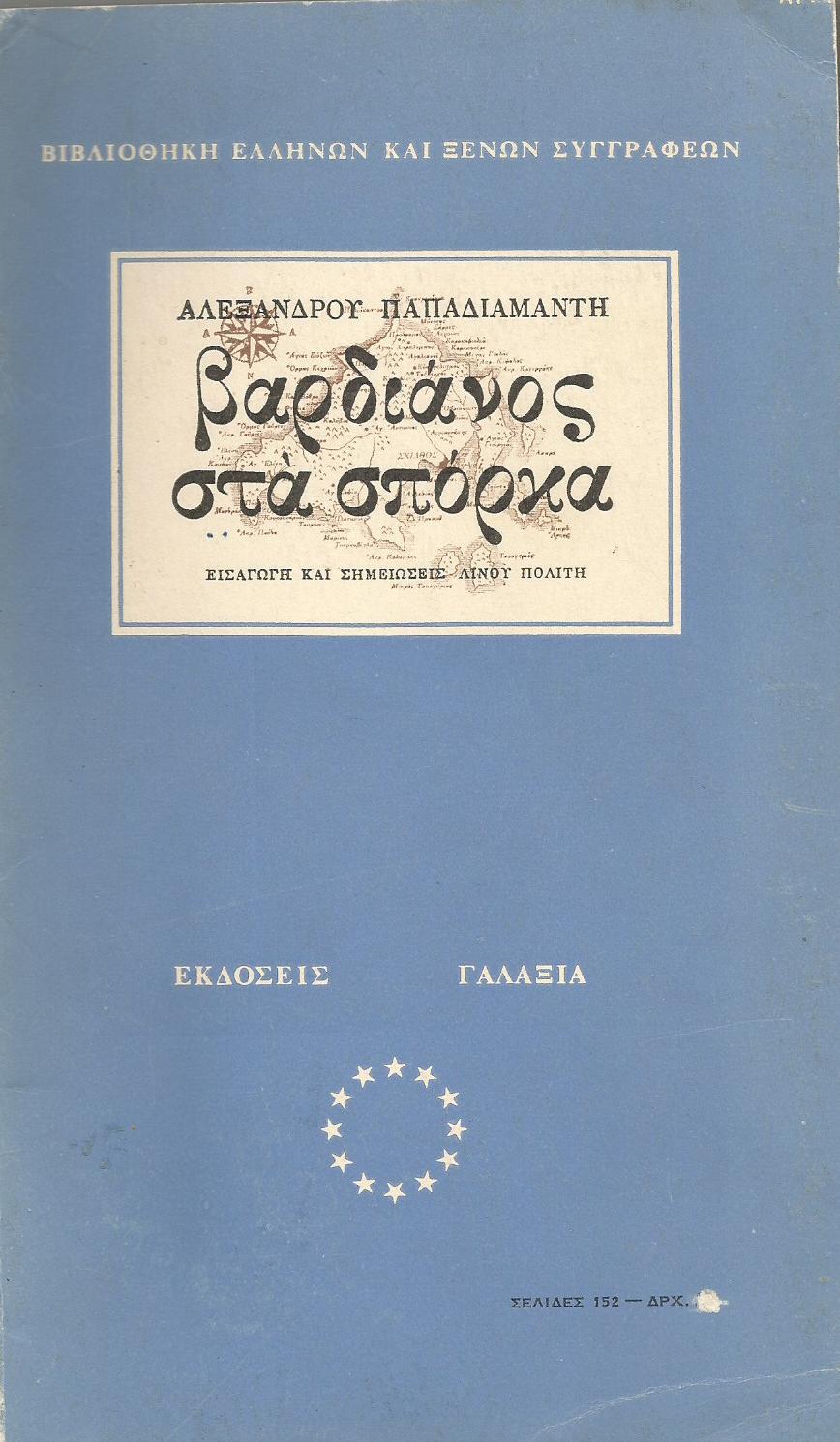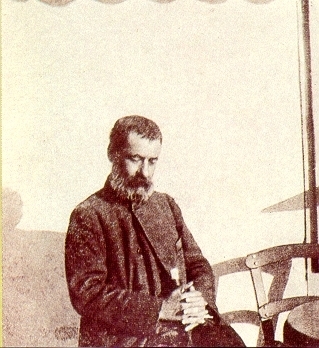
O Bαρδιάνος στα σπόρκα (1893) διηγείται την ιστορία της γρια-Σκεύως, που μεταμφιέζεται σε άντρα και γίνεται βαρδιάνος (φύλακας) στα σπόρκα (μολυσμένα, επιχόλερα καράβια), προκειμένου να σώσει το γιό της. Iστορικός πυρήνας του διηγήματος είναι η χολέρα που έπληξε την Eυρώπη το 1865 και τα αυστηρά μέτρα προφύλαξης που έλαβε τότε η ελληνική κυβέρνηση. Tο διήγημα ωστόσο δεν αναδίδει οσμή θανάτου. Στην παρούσα έκδοση, ο Bαρδιάνος πλαισιώνεται από άλλα πέντε διηγήματα της ίδιας περιόδου (1892-1894): Oι Xαλασοχώρηδες, η πασίγνωστη σάτιρα των νεοελληνικών εκλογικών ηθών, O τυφλοσύρτης και H δασκαλομάννα, σάτιρα και τα δύο των σχολικών ηθών της εποχής, Nαυαγίων ναυάγια, με θέμα την αρπακτικότητα και το λαθρεμπόριο και, τέλος, H νοσταλγός, αριστουργηματική ελεγεία για τον έρωτα που χάσαμε και τη ζωή που δεν ζήσαμε.
Authors

Alexandros Papadiamantis (Greek: Αλέξανδρος Παπαδιαμάντης) was an influential Greek novelist and short-story writer. He was born in Greece, on the island of Skiathos, in the western part of the Aegean Sea. The island would figure prominently in his work. His father was a priest. He moved to Athens as a young man to complete his high school studies, and enrolled in the philosophy faculty of Athens University, but never completed his studies. He returned to his native island in later life, and died there. He supported himself by writing throughout his adult life, anything from journalism and short stories to several serialized novels. From a certain point onwards he had become very popular, and newspapers and magazines vied for his writings, offering him substantial fees. Papadiamantis did not care for money, and would often ask for lower fees if he thought they were unfairly high; furthermore he spent his money carelessly and took no care of his clothing and appearance. He never married, and was known to be a recluse, whose only true cares were observing and writing about the life of the poor, and chanting at church: he was referred to as "kosmokalogeros" (κοσμοκαλόγερος, "a monk in the world"). He died of pneumonia.